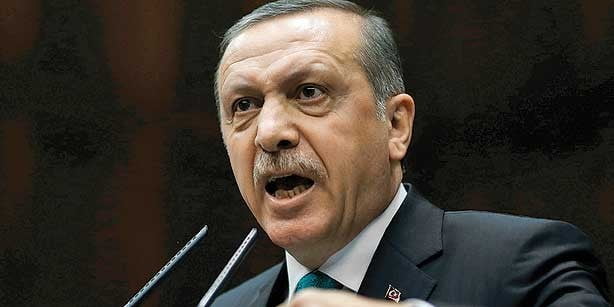How to Play Nice With an Angry Erdogan

Date posted: August 3, 2016
STEPHEN KINZER
The sweeping purges and mass arrests since last month’s failed military coup in Turkey have confirmed many of the worst fears about President Recep Tayyip Erdogan’s government. They are the most recent in a long history of abuses. Over the last few years, Mr. Erdogan has harshly repressed the Turkish press and civil society, supported extremist militant groups in Syria, broken off a promising peace process with his country’s Kurdish nationalists, and worked relentlessly to change his country’s Constitution so he can rule as a quasi-dictator.
From Washington’s point of view, Turkey has become as much of a headache as an ally. Never has a NATO member strayed so far from the fold. This pushes the United States toward a painful choice. It can disavow Mr. Erdogan, break with Turkey and even try to expel it from NATO. That would be the moral course toward a tyranny-in-the-making. It would also bring coherence back to NATO policy in Syria, where today one ally, the United States, supports factions that another ally, Turkey, attacks and bombs.
The alternative is to swallow hard, recognize Turkey’s unique geopolitical importance and accept Mr. Erdogan as he is. This is the messier and less noble option, but the likelier one because it best suits American interests. Turkey is heading toward international isolation — and perhaps even economic crisis and civil war. To cast it loose at this moment would be to renounce Washington’s remaining influence in Ankara, which is substantial. It would also be an abandonment of its many Turkish friends, the millions who mourn the erosion of democracy and may have the chance to rebuild it when this dark era is past.
As threats to Turkey’s stability grow, Mr. Erdogan may become more receptive to American advice and agree to change his approach in Syria. That would mean ending his support for militant groups and joining the fight against them; softening his enmity toward the government of President Bashar al-Assad; and restarting his suspended peace talks with Kurdish nationalists. The odds are against such a U-turn, but some version of it may be possible. Without American influence, it is all but inconceivable.
Another way Mr. Erdogan could lead Turkey back into Washington’s good graces would be to pull back from his campaign to crush dissent at home. This is less likely than a change in security policy. Mr. Erdogan has constructed a narrative in which Turkey is under relentless attack from sinister forces that are backed by Kurds, secularists, journalists, university deans, judges and the Pennsylvania-based cleric Fethullah Gulen. This resonates with many Turkish voters.
A worsening strategic landscape could lead Mr. Erdogan to reshape his policies in Syria and elsewhere in the region. Nothing in his character or political calculation, however, suggests that he will begin tolerating more dissent and debate at home. Any decision by the United States to maintain ties with Turkey would require acceptance of this unpleasant truth. It is profoundly lamentable that Turkey has abandoned its role as the world’s leading Muslim democracy, but it is reality, and wise foreign policy is always based on acceptance of reality.
Cutting ties to uncooperative governments, and even punishing them with sanctions or other coercive measures, was a realistic option for policy makers in Washington during the peak of American power in the last century. Today such tactics are less potent. Turkey has other options. It might react to a break with the United States by embracing Russia or China, or by launching all-out war against the Kurds, or by sending Turkish ground forces into Syria. Escalating this confrontation will not benefit either side.
Intense diplomacy, aimed at preserving what is left of United States-Turkey friendship, is in Washington’s interest. Turkey’s army is in disarray following the coup attempt, with many senior officers cashiered or arrested. The United States is in a better position than any other power to help rebuild it. Turkey has also been battered by terrorism, including the recent bombing of Istanbul’s airport, and American intelligence cooperation could be vital in preventing more attacks. Many European countries are fed up with Turkey’s behavior and would be happy to dump Mr. Erdogan as an ally. That would leave Turkey even more isolated than it is now. The United States cannot excuse domestic repression, but it can tell its NATO partners to cool their anger because Middle East security depends greatly on Turkey’s actions.
Conciliation, however, should not extend to meeting Turkey’s increasingly insistent demand for the extradition of Mr. Gulen, who has lived in the United States for most of the last 20 years and whom Mr. Erdogan has singled out as the mastermind behind the recent coup attempt. (Mr. Gulen denies the charges.) The United States should seek compromise with Turkey and offer benefits if its policies change, but acceding to demands for Mr. Gulen’s head, after resisting them for so long, would be a compromise too far.
Barring a sudden conversion of the man whose whim is Turkey’s will, or his unexpected departure from power, American-Turkish relations are unlikely to improve soon. Turkey’s cooperation with its NATO allies, especially in Syria, will be sporadic and halfhearted. At home, a free press and the rule of law will remain memories. Yet the United States and Turkey still share important interests. The most vital of these is assuring that Turkey does not slide toward the upheaval that has engulfed some of its neighbors. In a region where Americans have no true friends, the United States-Turkey tie is too important to cut.
Stephen Kinzer, a former New York Times correspondent, is a senior fellow in international affairs and diplomacy at the Watson Institute and the author, most recently, of “The Brothers: John Foster Dulles, Allen Dulles, and Their Secret World War.”
Source: New York Times , August 3, 2016
Tags: Military coups in Turkey | North America | USA |
























